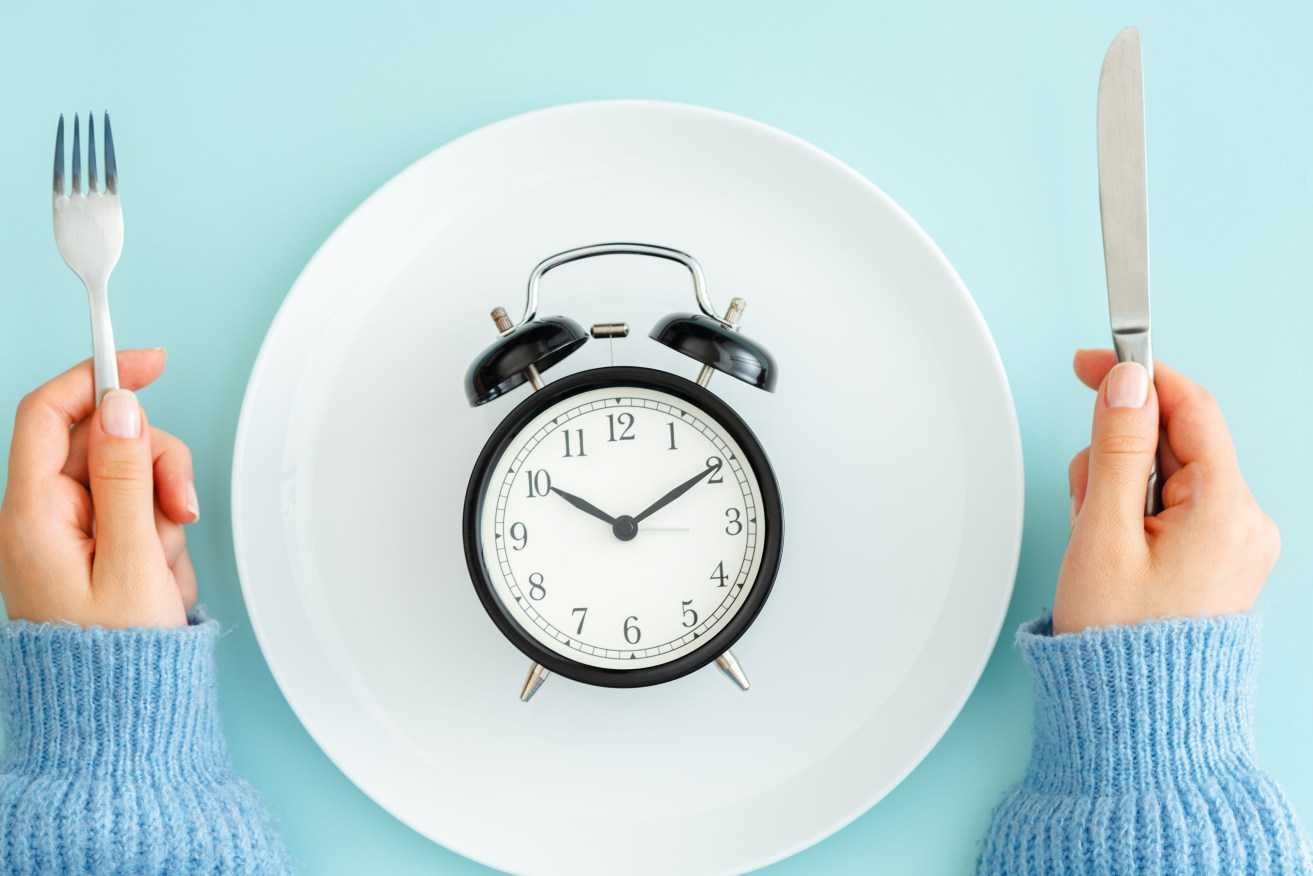It’s what you eat, not when you eat, that helps you lose weight: Study


Time-restricted eating and counting calories deliver the same amount of weight loss. Photo: Getty
Does time-restricted eating help you lose weight more effectively than old-fashioned counting calories?
The short answer has always been no.
So, does this mean time-restricted eating – where you confine your eating to a certain number of hours a day – is a waste of time?
Not at all.
Keep that in mind when considering the findings of a new study that reportedly “challenges the benefits of intermittent fasting”.
The study authors, from the esteemed Johns Hopkins University School of Medicine, make this claim.
At least they do in their press release headline. And it has been widely reported with that focus.
But it’s not quite right.
As the authors note, “evidence shows that when adults with obesity limit their eating window to four to 10 hours, they naturally reduce caloric intake by approximately 200 to 550 calories per day and lose weight over two to 12 months”.
What they have helpfully done in the new study is show that whatever strategy you adopt for weight loss, the number of calories consumed remains the central driver.
As the researchers explain in a statement from the American College of Physicians: “The natural reduction in calories a person consumes when doing a time-restricted eating diet is likely the reason they lose weight, rather than the time window itself.”
The new study
This was a small study in which 41 adults with obesity and pre-diabetes were randomly assigned to either time-restricted eating (TRE) with a 10-hour eating window or a “regular eating pattern” for 12 weeks to compare weight loss and other measures of metabolic health.
The participants’ history and activity levels were used to estimate baseline caloric needs.
Participants in both groups received prepared meals with identical macronutrient and micronutrient compositions and instructions on when to consume the meals.
For consistency, the participants ate the same number of calories daily throughout the study.
The TRE group was instructed to eat only between the hours of 8am to 6pm. They consumed most of their calories before 1pm each day.
The free-ranging group ate between 8am and midnight and consumed most of their calories after 5pm each day.
After 12 weeks, both groups lost about the same amount of weight and there were no real differences in fasting glucose, waist circumference, blood pressure, or lipid levels.
One style of eating wasn’t superior to the other as long as the calories were held constant in both groups.
An accompanying editorial from the University of Illinois Chicago argued that time-restricted eating is a simple and effective approach.
It tends to encourage people to naturally eat fewer calories by watching the clock, rather than watching what they eat.
The editorial authors said TRE may be easier for patients to follow.
This is because it allows them to continue consuming familiar foods. This simplified approach to treating obesity could help patients who don’t do well counting calories.
The findings were presented in Boston at the American College of Physicians (ACP) Internal Medicine Meeting 2024.
The paper also is published in Annals of Internal Medicine.
Recent controversies
A popular TRE plan involves eating only during an eight-hour period followed by a 16-hour fasting window.
This means, for example, the last meal is at 8pm, and the next meal isn’t until midday the next day.
The American Heart Association recently published a controversial study involving 20,000 participants.
The study concluded that the 16:8 program was “directly related to a 91 per cent increased risk of cardiovascular death”.
Some experts criticised the report.
On the flip side, another recent study published in 2023 by the Endocrine Society concluded that a 16:8 fasting schedule improved glucose levels and cardiometabolic health.
The New Daily has previously reported extensively on the diet trend.
Bottom line: It’s wise to talk to your doctor if you’re looking to embark on any weight-loss regime.








